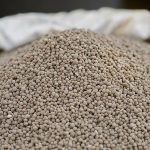“It’s going to take a lot of production to feed the world and we will need biotechnology to feed the world of the future.” – STEVEN MERCER Growing global acceptance of genetically modified, or GMO, crops is laying the foundation for wider acceptance of GMO wheat, but the grain’s direct ties to the human food



